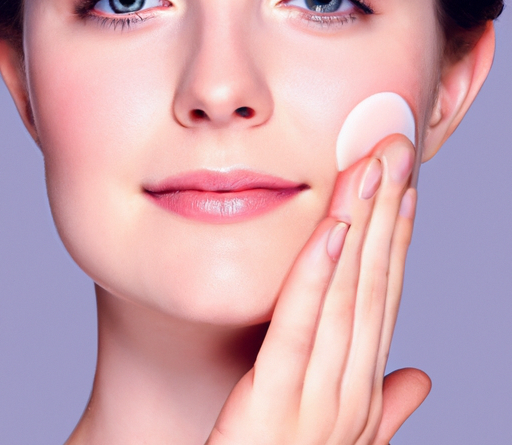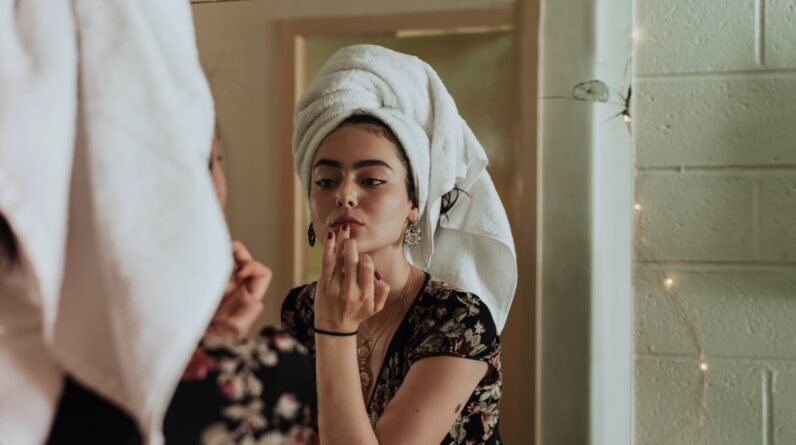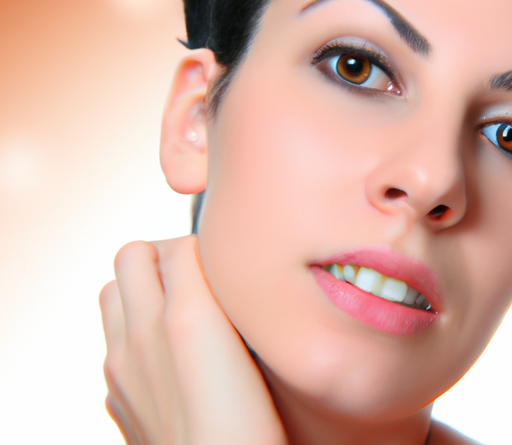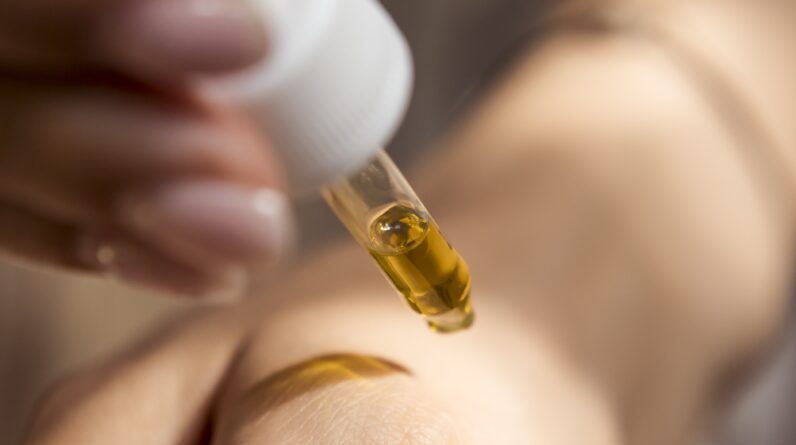You’re constantly on the lookout for new ways to enhance your appearance and boost your self-confidence, and one area that can truly revolutionize your look is your skin. The “Revolutionize Your Look: Perfect Smooth Skin Guide” is here to help you achieve the flawless complexion you’ve always dreamed of. Packed with expert tips and tricks, this guide will walk you through the essential steps to attain smooth, radiant skin, leaving you feeling confident and ready to take on the world. Say goodbye to blemishes and hello to a new you with this all-inclusive guide.
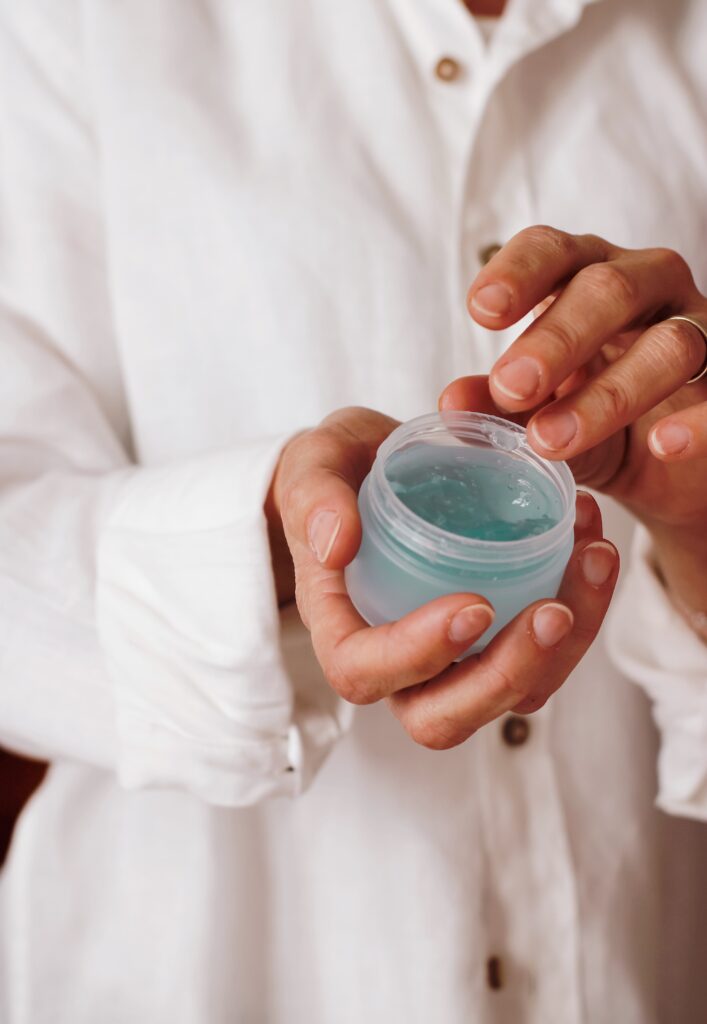
This image is property of images.unsplash.com.
1. Understanding Your Skin
Understanding your skin is the first step towards achieving a flawless complexion and maintaining its health. By determining your skin type, identifying common skin concerns, and following basic skincare practices, you can lay the foundation for radiant and smooth skin. Additionally, proper nutrition plays a crucial role in supporting skin health from within.
1.1 Determining Your Skin Type
Knowing your skin type is essential for selecting the right skincare products and addressing specific concerns. The four primary skin types are normal, dry, oily, and combination. Normal skin is generally well-balanced, while dry skin tends to be parched and flaky. Oily skin is characterized by excess sebum production, leading to shine and frequent breakouts. Combination skin typically exhibits both dry and oily areas.
1.2 Common Skin Concerns
Various skin concerns can affect individuals of all skin types. Acne-prone skin is often plagued by frequent breakouts and blemishes, while Dry and dehydrated skin lacks moisture and appears dull. Oily and combination skin types may struggle with enlarged pores and excessive oiliness. Aging skin commonly experiences fine lines, wrinkles, and loss of elasticity. Hyperpigmentation and dark spots are another concern, often caused by sun damage or hormonal fluctuations. Lastly, sensitive skin is prone to irritation and inflammation, requiring gentle and soothing skincare.
1.3 Skin Care Basics
To achieve and maintain healthy skin, it is crucial to follow a consistent skincare routine. This routine should consist of cleansing, exfoliating, hydrating, and protecting your skin. Cleansing your skin removes dirt, oil, and impurities, allowing it to breathe and maintain a clear complexion. Exfoliating helps slough off dead skin cells, promoting cell turnover and a brighter complexion. Hydrating your skin with moisturizers and serums replenishes moisture levels and nourishes your skin. Lastly, protecting your skin from the harmful rays of the sun by using sunscreen is vital to prevent sun damage and premature aging.
1.4 Importance of Proper Nutrition
While external skincare is crucial, the significance of proper nutrition should not be overlooked. Eating a healthy, balanced diet rich in vitamins, minerals, antioxidants, and essential fatty acids supports overall skin health. Consuming fruits, vegetables, whole grains, lean proteins, and healthy fats can help nourish your skin from the inside out. Additionally, staying hydrated by drinking an adequate amount of water daily helps maintain skin moisture levels and flushes out toxins.
2. Preparing Your Skin
Before diving into specific skincare concerns, it is important to prepare your skin properly. This includes cleansing, exfoliating, hydrating, and protecting your skin to create a clean and smooth canvas for further treatment.
2.1 Cleansing Your Skin
Cleansing your skin is the foundation of any skincare routine. It removes dirt, oil, makeup, and impurities that accumulate on your skin throughout the day. Choose a gentle cleanser suited for your skin type and massage it onto your damp face in gentle circular motions. Rinse with lukewarm water and pat your skin dry with a soft towel. Cleansing your skin twice a day, in the morning and evening, is recommended to maintain a clean complexion.
2.2 Exfoliating Dead Skin Cells
Exfoliating is the process of removing dead skin cells from the surface of your skin. This step helps unclog pores, smooth rough texture, and promote cell turnover. Exfoliation can be done through physical or chemical methods. Physical exfoliation involves using a scrub or brush to manually slough off dead skin cells, while chemical exfoliation utilizes products containing ingredients like alpha-hydroxy acids (AHAs) or beta-hydroxy acids (BHAs) to dissolve dead skin cells. Be cautious not to over-exfoliate, as it can cause skin irritation and sensitivity.
2.3 Hydrating and Moisturizing
Hydration is vital for maintaining a supple and youthful complexion. After cleansing and exfoliating, it is crucial to replenish moisture levels with hydrating products. Look for lightweight serums, essences, or moisturizers that suit your skin type. Hyaluronic acid is a popular ingredient known for its ability to attract and retain moisture. Gently pat your chosen product onto your skin, allowing it to fully absorb.
2.4 Protecting Your Skin from Sun Damage
Sun protection is paramount in skincare to prevent premature aging, hyperpigmentation, and skin cancer. Apply a broad-spectrum sunscreen with a minimum SPF of 30 daily, even on cloudy days. Make sure to cover all exposed areas, including your face, neck, and hands. Reapply every two hours, or more frequently if you sweat or come into contact with water. Additionally, seek shade, wear protective clothing, and use accessories like hats and sunglasses to shield your skin from the sun’s harmful rays.
3. Targeting Skin Issues
Everyone’s skin has its unique concerns, and it is essential to address them effectively. Understanding how to target specific skin issues like acne-prone skin, dryness, oiliness, aging, hyperpigmentation, and sensitivity can help you tailor your skincare routine accordingly.
3.1 Acne-Prone Skin
Acne-prone skin requires a gentle yet effective approach to manage breakouts. Look for products with ingredients like salicylic acid or benzoyl peroxide to combat acne-causing bacteria. Avoid harsh cleansers or heavy products that can strip the skin and lead to increased oil production. Incorporating a targeted spot treatment and regular exfoliation can also help keep acne at bay.
3.2 Dry and Dehydrated Skin
Dry and dehydrated skin lacks moisture, resulting in dullness, flakiness, and a tight feeling. To combat dryness, opt for moisturizers and serums that contain hydrating ingredients like hyaluronic acid, glycerin, or ceramides. Look for occlusive ingredients such as shea butter or oils like jojoba or argan to lock in moisture. Consider incorporating a weekly hydrating mask to provide an extra hydration boost.
3.3 Oily and Combination Skin
Oily and combination skin types require balancing excess oil production while maintaining hydration. Look for oil-free or lightweight moisturizers that provide hydration without clogging pores. Incorporating products containing ingredients like niacinamide or tea tree oil can help regulate sebum production. Use gentle, non-stripping cleansers to avoid stripping the skin of its natural oils, which can lead to increased oil production.
3.4 Aging Skin
Aging skin requires special attention to combat the signs of aging, such as fine lines, wrinkles, and loss of elasticity. Look for products containing anti-aging ingredients like retinol, peptides, or vitamin C. These ingredients can help stimulate collagen production, improve skin texture, and reduce the appearance of wrinkles. Additionally, incorporating a rich and nourishing moisturizer can provide extra hydration and support to aging skin.
3.5 Hyperpigmentation and Dark Spots
Hyperpigmentation and dark spots can occur due to sun damage, hormonal changes, or scarring. Incorporating products containing ingredients like kojic acid, vitamin C, or niacinamide can help lighten existing dark spots and prevent further pigmentation. Additionally, diligently wearing sunscreen and avoiding excessive sun exposure is paramount in preventing and minimizing hyperpigmentation.
3.6 Sensitive Skin
Sensitive skin requires a gentle and minimalist approach to avoid irritation and inflammation. Look for fragrance-free and hypoallergenic products specifically formulated for sensitive skin. Incorporating products with soothing ingredients like aloe vera, chamomile, or green tea extract can help calm sensitivity. Patch testing new products before applying them to your face is also recommended to ensure compatibility with your skin.
4. Achieving a Flawless Complexion
Once you have addressed specific skin concerns, achieving a flawless complexion involves enhancing your natural features with the right makeup techniques. From using foundation and concealer to applying blush, bronzer, and perfecting your lips, these steps can help you create a polished look.
4.1 Using Foundation and Concealer
Foundation and concealer are key products for creating a smooth and even complexion. Choose a foundation that matches your skin tone and apply it evenly over your face, blending it with a brush, sponge, or your fingertips. Use a concealer that matches your skin tone or is slightly lighter to conceal any blemishes or dark circles under your eyes. Blend well and set with a translucent powder for a long-lasting finish.
4.2 Applying Blush and Bronzer
Blush and bronzer add dimension and color to your face, giving you a healthy and radiant glow. Apply blush to the apples of your cheeks, blending it upwards towards your temples. Choose a shade that complements your skin tone, whether it be a soft pink, coral, or peach. Additionally, use bronzer to contour your face and add warmth. Apply it to the hollows of your cheeks, along your jawline, and on your temples for a natural sun-kissed look.
4.3 Enhancing Your Eye Area
Your eyes are a focal point of your face, and enhancing them can elevate your overall look. Use an eyeshadow primer to create a smooth base, then apply eyeshadow shades that complement your eye color and desired look. Define your eyes by applying eyeliner along your lash line, and finish with mascara to lengthen and volumize your lashes. Opt for an eyebrow pencil or powder to fill in and shape your eyebrows for a more defined look.
4.4 Perfecting Your Lips
Lips play a significant role in completing your makeup look. Exfoliate your lips gently with a lip scrub to remove any dry and flaky skin. Apply a lip balm to hydrate and soften your lips before applying lipstick or lip gloss. Choose a shade that suits your skin tone and desired look, whether it be a bold red, a subtle nude, or a vibrant pink. Use a lip liner to define and shape your lips before applying your chosen lip color.
4.5 Setting Your Makeup
To ensure your makeup lasts throughout the day or night, setting it is essential. Use a setting spray or a translucent powder to set your foundation, concealer, blush, bronzer, and eyeshadow. This helps to reduce shine, extend the wear time of your makeup, and keep it in place. Lightly mist your face with a setting spray or apply translucent powder with a powder brush, focusing on oil-prone areas.

This image is property of images.unsplash.com.
5. The Power of Skincare Products
Skincare products play a crucial role in maintaining and improving the health and appearance of your skin. From serums and ampoules to moisturizers and sunscreens, understanding the benefits and incorporating them into your routine can revolutionize your skincare game.
5.1 Serums and Ampoules
Serums and ampoules are potent skincare products formulated with high concentrations of active ingredients. They are designed to target specific skin concerns and provide visible results. Serums are lightweight and absorb quickly into the skin, delivering powerful antioxidants, vitamins, and hydrating ingredients. Ampoules, on the other hand, are highly concentrated formulas used as a short-term treatment for intense hydration or rejuvenation.
5.2 Moisturizers and Sunscreens
Moisturizers are a staple in any skincare routine, as they help replenish and seal in moisture, keeping the skin hydrated and supple. Look for moisturizers formulated with ingredients like hyaluronic acid, ceramides, or glycerin to nourish and protect your skin. Sunscreens are essential for protecting your skin from harmful UVA and UVB rays, preventing sunburn, premature aging, and skin cancer. Choose a broad-spectrum sunscreen with a suitable SPF for your daily needs and use it as the final step in your skincare routine.
5.3 Face Masks and Sheet Masks
Face masks and sheet masks are skincare treats that offer a multitude of benefits in a single application. They provide intense hydration, brightening, pore-refining, and rejuvenating effects depending on the specific mask. Face masks can be used once or twice a week to pamper your skin and address specific concerns. Sheet masks are single-use masks soaked in serum that adhere to the face, delivering active ingredients for a targeted treatment.
5.4 Facial Oils
Facial oils have gained popularity in recent years for their ability to nourish and moisturize the skin deeply. They can be used as a standalone moisturizer or added to your existing skincare routine to boost hydration. Facial oils are typically high in essential fatty acids and antioxidants, providing skin-repairing and anti-aging benefits. Choose facial oils suited to your skin type, such as argan oil for dry skin or jojoba oil for oily skin.
5.5 Eye Creams and Serums
The delicate skin around the eyes requires special care and attention. Eye creams and serums are specifically formulated to target concerns like fine lines, wrinkles, dark circles, and puffiness. Look for eye products with ingredients like retinol, peptides, vitamin C, or hyaluronic acid to improve the appearance of the under-eye area. Gently tap or massage the product around your eye area using your ring finger to avoid excessive tugging or pulling.
5.6 Lip Care Products
Lip care should not be overlooked when it comes to skincare. Lips can easily become dry, chapped, and cracked, necessitating the use of lip balms, lip masks, or lip scrubs. Lip balms provide hydration, protection, and nourishment to keep your lips soft and supple. Lip masks and scrubs can be used occasionally to exfoliate and renew the skin on your lips, helping to remove dead skin cells and reveal smoother lips.
6. Profound Tips for Healthy Skin
In addition to a well-rounded skincare routine, certain lifestyle factors greatly impact the health and appearance of your skin. By getting enough sleep, staying hydrated, eating a healthy diet, managing stress, engaging in regular exercise, and avoiding smoking and excessive alcohol, you can promote healthy skin from the inside out.
6.1 Getting Enough Sleep
Adequate sleep is essential for healthy skin. While you sleep, your skin repairs and rejuvenates itself, leading to a fresh and radiant complexion. Lack of sleep can cause dark circles, dullness, and an increase in stress levels, which can trigger skin conditions like acne. Aim for 7-9 hours of quality sleep each night to allow your skin to regenerate and maintain its optimal health.
6.2 Staying Hydrated
Proper hydration is key to maintaining healthy skin. When your body is dehydrated, it can manifest through dry and dull skin. Drinking an adequate amount of water throughout the day helps flush out toxins, maintain skin moisture levels, and promote a healthy complexion. Aim to drink at least eight glasses of water daily or more, depending on your body’s needs and activity level.
6.3 Eating a Healthy Diet
Your diet plays a crucial role in your skin’s health. Including a variety of fruits, vegetables, whole grains, lean proteins, and healthy fats in your diet provides essential vitamins, minerals, antioxidants, and nutrients that support skin health. Incorporate foods rich in omega-3 fatty acids like salmon, flaxseeds, and walnuts to promote a healthy lipid barrier and reduce inflammation. Limit processed foods, sugary snacks, and excessive consumption of dairy, as they can contribute to skin issues.
6.4 Managing Stress
Chronic stress can wreak havoc on your skin, causing breakouts, inflammation, and exacerbating existing skin conditions. Finding healthy coping mechanisms to manage stress, such as practicing mindfulness, meditation, deep breathing exercises, or engaging in hobbies, can significantly impact your skin’s health. Take time to prioritize self-care and relaxation to promote a healthy mind and body, reflecting positively on your skin.
6.5 Regular Exercise
Engaging in regular exercise not only benefits your overall health but also your skin. Exercise improves circulation, delivering oxygen and nutrients to the skin, promoting a healthy complexion. It helps flush out toxins through sweating, reducing the likelihood of clogged pores and breakouts. Incorporate a mix of aerobic and strength-training exercises into your routine to maximize skin benefits.
6.6 Avoiding Smoking and Excessive Alcohol
Smoking and excessive alcohol consumption have detrimental effects on the skin. Smoking narrows blood vessels, reducing blood flow and oxygen supply to the skin, leading to a lackluster complexion and premature wrinkles. Alcohol dehydrates the skin and disrupts its natural balance, resulting in dryness, inflammation, and increased skin sensitivity. Limiting your alcohol intake and avoiding smoking altogether can significantly improve the health and appearance of your skin.
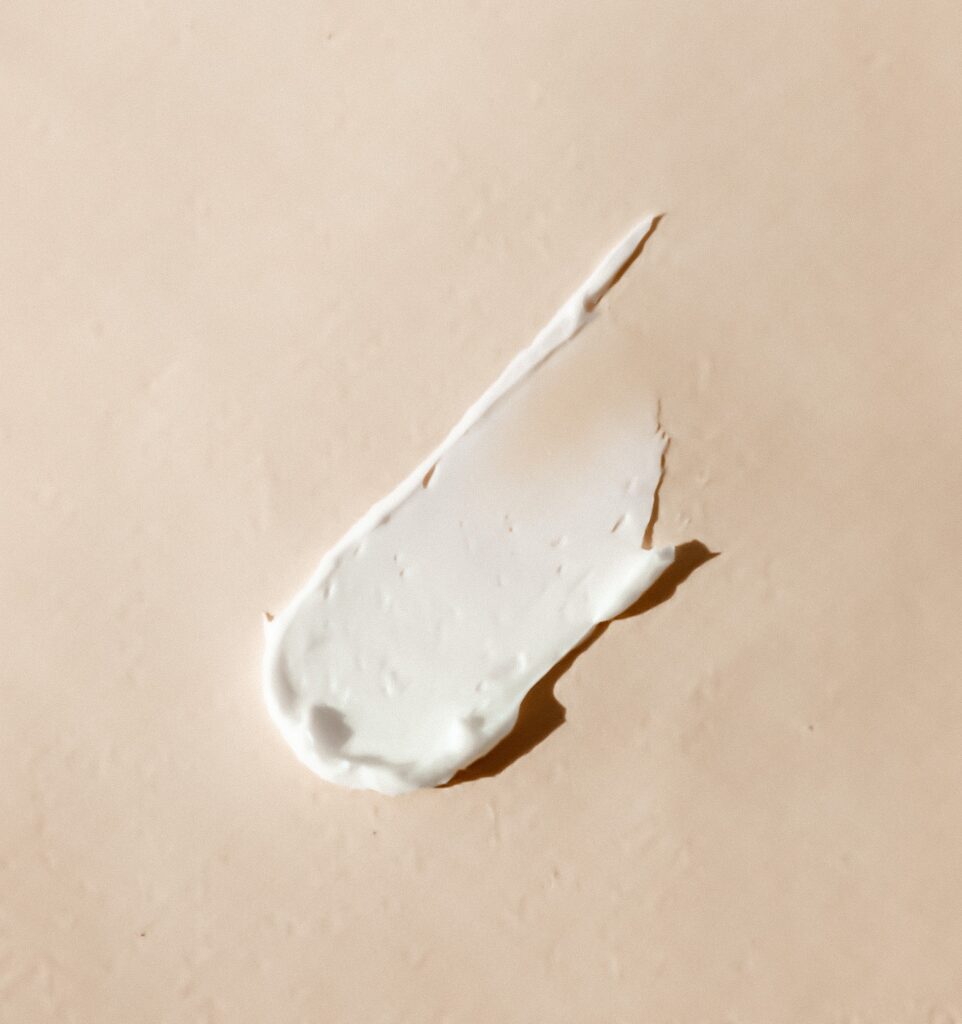
This image is property of images.unsplash.com.
7. Incorporating Skincare Habits
Establishing a skincare routine and sticking to it is essential for maintaining healthy skin. By following a consistent morning skincare routine, nighttime skincare routine, incorporating weekly skincare treatments, and performing monthly skincare check-ins, you can achieve and sustain desired results.
7.1 Morning Skincare Routine
Start your day off right by following a morning skincare routine that suits your skin type and concerns. Begin with cleansing to remove oil and impurities accumulated overnight. Then apply toner to balance the pH level of your skin. Follow with serums or treatments targeting specific concerns. Apply moisturizer to hydrate your skin and finish off with sunscreen to protect against harmful UV rays.
7.2 Nighttime Skincare Routine
Nighttime is an opportunity for your skin to repair and regenerate. Begin by removing makeup and cleansing your face thoroughly to remove dirt, oil, and pollution accumulated throughout the day. Follow up with toner to balance the skin’s pH and prepare it for further treatment. Incorporate targeted treatments or serums to address specific concerns like fine lines, acne, or hyperpigmentation. Finish with a moisturizer to nourish the skin while you sleep.
7.3 Weekly Skincare Treatments
In addition to your daily skincare routine, incorporating weekly treatments can provide an extra boost to your skin. This can include exfoliation with a gentle scrub or chemical exfoliant to remove dead skin cells, revealing a smoother complexion. Use a face mask suited for your skin type and concerns to provide intensive hydration, brightening, or purifying effects. Incorporating a facial massage or facial steaming can also enhance blood circulation and promote a healthy glow.
7.4 Monthly Skincare Check-in
Once a month, take some time to evaluate the state of your skin and reassess your skincare routine. Notice any changes, improvements, or concerns and adjust your regimen accordingly. This could involve switching out products, incorporating new treatments, or seeking professional advice. Paying attention to your skin’s needs and adapting your routine ensures that you continue to achieve optimal results.
8. Seeking Professional Help
While establishing a robust skincare routine is essential, sometimes professional guidance and treatments can be beneficial. Dermatologist consultation, professional facial treatments, and advanced skin procedures can provide specialized care, addressing specific concerns and providing expert advice.
8.1 Dermatologist Consultation
If you have persistent or severe skin concerns, it may be wise to seek a dermatologist’s expertise. Dermatologists are medical professionals specializing in skin health and can diagnose and treat various skin conditions. They can provide personalized skincare recommendations, prescribe medication if necessary, and guide you towards a tailored treatment plan.
8.2 Professional Facial Treatments
Professional facial treatments offer expert care and can cater to specific skincare needs. Facial treatments like chemical peels, microdermabrasion, or laser resurfacing can address concerns like acne, hyperpigmentation, or aging skin. These treatments are performed by trained professionals and can provide visible results beyond what can be achieved with homecare alone.
8.3 Advanced Skin Procedures
For more targeted concerns or advanced skincare needs, advanced skin procedures may be necessary. These procedures, often performed by medical or cosmetic professionals, can include treatments like dermal fillers, botox injections, or non-surgical facelifts. Advanced procedures should be thoroughly researched, and consultations with professionals should be undertaken for detailed information, benefits, and risks involved.

9. Mindful Lifestyle Changes
Beyond skincare routines, products, and treatments, adopting mindful lifestyle changes can further enhance your skin’s health and radiance. By avoiding harmful ingredients, selecting the right products, developing a consistent skincare routine, and prioritizing self-care and relaxation, you can promote a holistic approach to skincare.
9.1 Avoiding Harmful Ingredients
Becoming aware of harmful ingredients commonly found in skincare products can help you make informed choices. Avoid ingredients like parabens, sulfates, phthalates, and artificial fragrances, as they can potentially irritate the skin or have other detrimental effects. Opt for products with natural, clean, or organic formulations to minimize exposure to potentially harmful ingredients.
9.2 Selecting the Right Products
Selecting the right skincare products tailored to your specific concerns and skin type is crucial. Read product labels carefully, looking for beneficial ingredients that address your concerns. Test new products on a small patch of skin before applying them to your face to check for any adverse reactions. Consider consulting with skincare professionals, estheticians, or dermatologists to get personalized product recommendations.
9.3 Developing a Skincare Routine
Consistency is key when it comes to skincare. Developing a skincare routine and sticking to it allows your skin to reap the benefits of regular care and treatment. Consistency also helps you track the effectiveness of your products and make adjustments as needed. Customize your routine to fit your skin’s needs, concerns, and preferences, and give your skin time to adjust to new products or treatments before expecting results.
9.4 Prioritizing Self-Care and Relaxation
Skincare goes beyond the physical aspect; it is also an opportunity to prioritize self-care and relaxation. Incorporate skincare routines into your daily life as a moment of mindfulness and self-indulgence. Create a calm and soothing environment, play relaxing music, and take your time to enjoy each step of your routine. By making skincare a self-care ritual, you can promote stress reduction, mental well-being, and cultivate a positive relationship with your skin.
10. Embracing Natural Remedies
While commercial skincare products offer a wide range of benefits, natural remedies can also play a part in promoting healthy skin. DIY face masks and scrubs, benefits of essential oils, and herbal infusions are natural alternatives worth exploring.
10.1 DIY Face Masks and Scrubs
Creating your own face masks and scrubs using natural ingredients can be a fun and affordable way to pamper your skin. Ingredients like honey, yogurt, oatmeal, and avocado can provide hydration, exfoliation, and nourishment. Experiment with different recipes and find combinations that suit your skin type and concerns. However, it is important to be cautious and do a patch test to ensure you are not allergic to any ingredients.
10.2 Benefits of Essential Oils
Essential oils have been used for centuries for their therapeutic properties and can benefit the skin when used properly. Incorporating oils like lavender, tea tree, rosehip, or chamomile into your skincare routine can offer various advantages. Essential oils can be used in diluted forms with a carrier oil, added to moisturizers or serums, or used in facial steaming. However, it is crucial to research and use essential oils safely, as some can cause skin irritation or sensitization.
10.3 Herbal Infusions for Skin Health
Herbal infusions can be a gentle and natural way to enhance skin health. Drinking herbal teas or using them topically as toners or facial mists can offer soothing, antioxidant, and anti-inflammatory benefits. Chamomile, green tea, calendula, and rose are some herbs commonly used for skin health. Research different herbs and their specific benefits and incorporate them into your routine as desired.
By following the comprehensive guide outlined above and understanding your skin type, addressing specific concerns, incorporating the right skincare habits, seeking professional help when needed, and embracing natural remedies, you can revolutionize your look and achieve the perfect smooth skin you desire. Remember, consistency, patience, and self-care are key to maintaining healthy and radiant skin.



